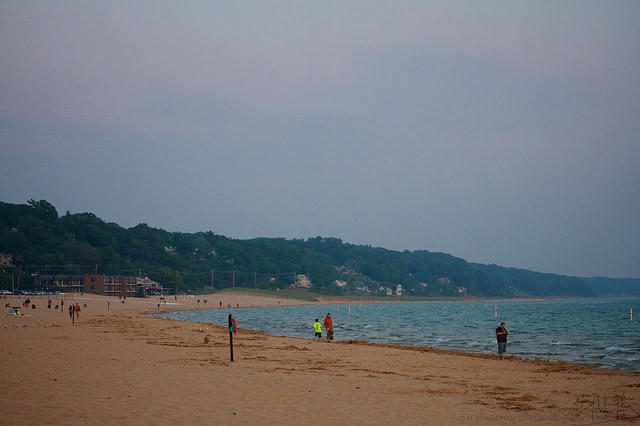Norton Speaks with Michigan Radio’s Stateside about Planning for the Rise and Fall of Great Lakes In Coastal Communities

Photo care of MIKE_MILEY / FLICKR HTTP://J.MP/1SPGCL0
Professor and Chair of the Urban and Regional Planning Program, Richard Norton, speaks with Lester Graham on Michigan Radio’s Stateside about his work with local governments in coastal communities around Michigan in planning for the rise and fall of Great Lakes water levels.
Norton has been collaborating for a long time with Guy Meadows, director of Great Lakes Research Center at Michigan Tech, whose research shows how lake levels affect shoreline dynamics. One feature to consider is that when lake levels are low, sand is pushed to the shore which gives the wrong impression that it is okay to build closer to the water.
Norton is interested in working with the local governments to take the shoreline data into consideration in their planning efforts. The lakes have been low for so long, so houses have been built closer and closer to the water. As lake levels rise, these houses are being taken over by the lake. Also, lake shorelines even erode during low water levels, so builders need to be careful, particularly in bluff areas which could erode in large pieces.
One way to protect coastal homes is by using hardscape methods such as concrete seawalls, however, while these protect the houses, they will cause the beaches to erode and disappear. Professor Norton and others would prefer if homeowners and coastal communities consider softscape options which are green infrastructures and natural buffers. These will adapt better to the shifts in the coastal water levels and will protect both the homes and the beaches.
A lot communities and local governments ignore the shoreline development issues because the large vacation homes produce high tax revenues. Norton hopes that with photographic and research evidence of homes being lost to the water levels and the erosion of beaches, they will start to think differently about planning in these areas.
Listen here for the full interview: http://michiganradio.org/post/shoreline-communities-look-better-ways-address-rise-and-fall-great-lakes




